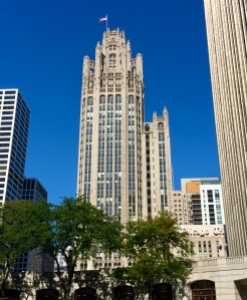
St. Elizabeth’s Medical Center in 2012. Photo (cc) by John Phelan.
If you haven’t seen The Boston Globe’s story about a mother who died shortly after giving birth, perhaps because the hospital lacked a device it needed to stop her bleeding, then you have to stop what you’re doing and give it a read. Globe reporter Jessica Bartlett’s 2,800-word story is both riveting and incredibly disturbing. It’s also so well-crafted that I asked my intermediate reporting students to read it in class so we could talk about how it was put together.
Bartlett skillfully shifts back and forth between the frantic attempts to save Sungida Rashid’s life and the larger crisis at St. Elizabeth’s Medical Center, the Brighton hospital that Rashid and her husband, Nabil Haque, had chosen for the birth of their first child. We learn that St. Elizabeth’s did not have the device, known as an embolism coil, because the hospital’s supply had been repossessed. It turns out that Steward Health Care, a for-profit company that owns St. Elizabeth’s and eight other hospitals in Massachusetts, hadn’t been paying its bills.
Incredibly, Haque didn’t know that devastating fact until the Globe informed him about it after he and his daughter had moved back to Bangladesh.
The major question a reader might have after reading the story was how St. Elizabeth’s and Steward had fallen into such a financial mess. That story is laid out in an earlier story by Bartlett and in a column by Globe business columnist Larry Edelman, who explain that a private equity firm known as Cerberus Capital Management had bailed out the hospitals in 2010. According to Edelman, Cerberus quadrupled its money and flipped the hospitals in 2017.
As Edelman points out, Cerberus is “named after the three-headed dog that guards the gates of Hades in Greek mythology.” The firm is also deeply involved in the destruction of the newspaper business. In 2021, Julie Reynolds reported for Nieman Lab that Cerberus was the financial backer for the notorious hedge fund Alden Global Capital when it acquired Tribune Publishing’s nine major-market daily newspapers, including the Chicago Tribune, The Baltimore Sun and the Hartford Courant. Cerberus gets much of its money, in turn, from investments made by public employee pension funds, especially in California and Pennsylvania.
Reynolds talked about the Alden-Cerberus connection on our “What Works” podcast back in November 2021.





